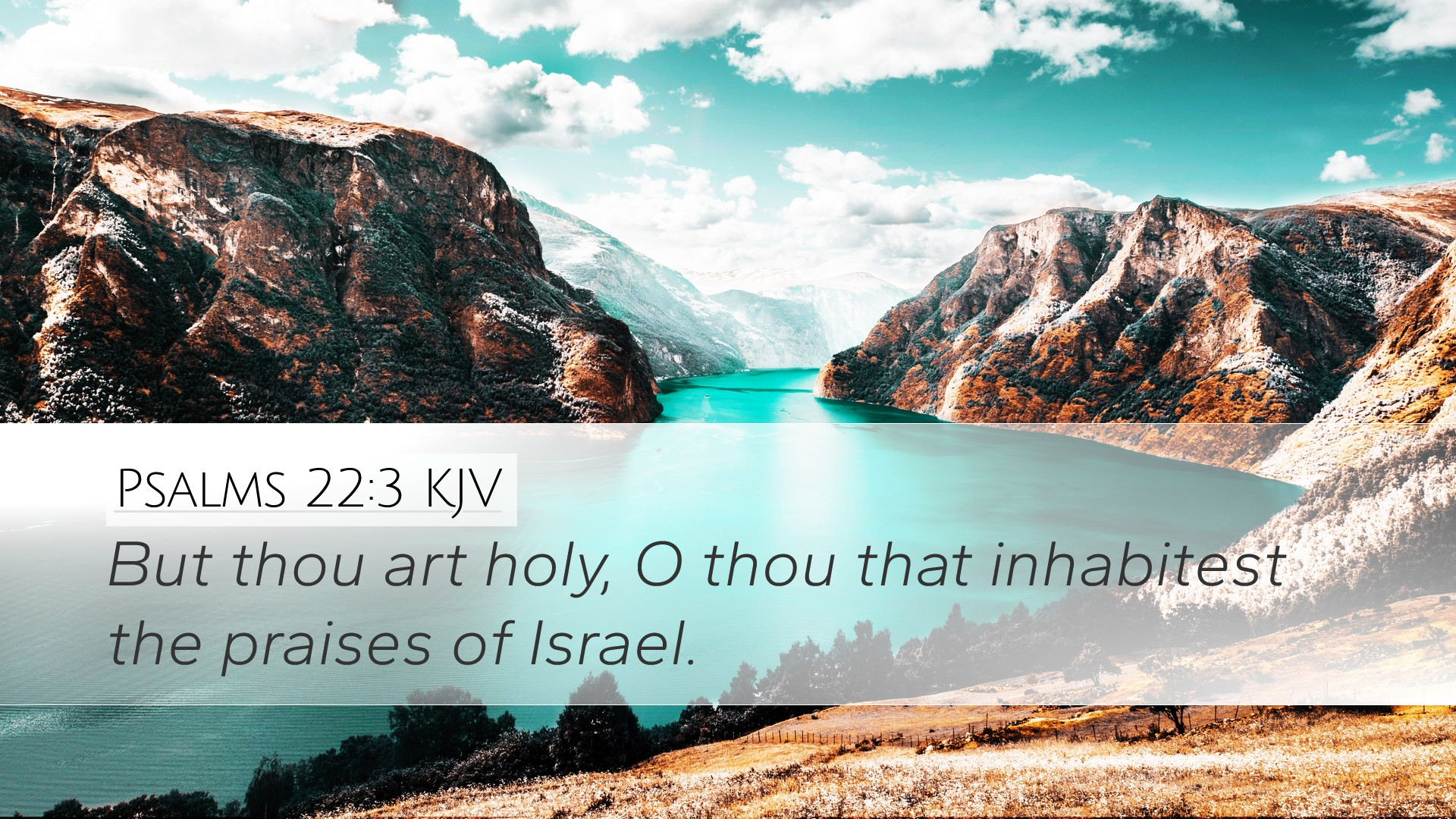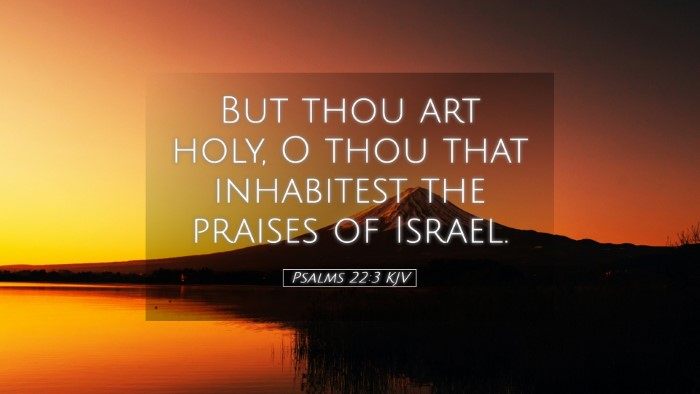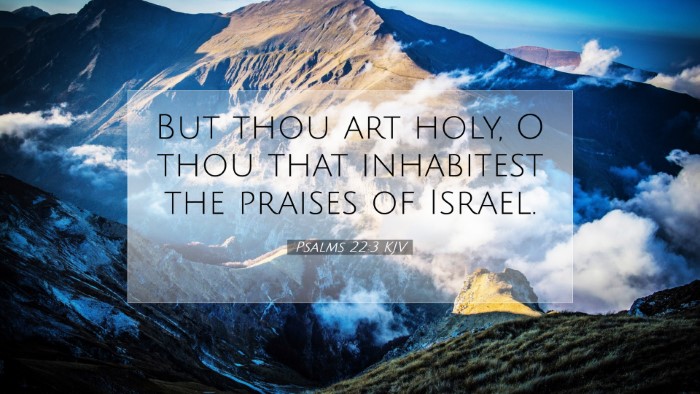Commentary on Psalms 22:3
Bible Verse: "But thou art holy, O thou that inhabitest the praises of Israel." (Psalms 22:3)
Introduction
This verse is pivotal within Psalm 22, a psalm ascribed to David, illustrating profound themes of suffering, lamentation, and worship. The juxtaposition of God's holiness with the despair of the psalmist presents a rich terrain for theological reflection. This commentary draws insights from esteemed public domain scholars to elucidate the depths of this scripture.
The Holiness of God
Matthew Henry notes that the holiness of God is not merely a divine attribute but a fundamental aspect of His nature. It represents His absolute purity and separateness from sin. This holiness is emphasized in times of despair, reminding the believer that while they may feel abandoned, God's nature remains untainted and just.
Albert Barnes complements this view by asserting that God's holiness signifies His majestic presence among His people, which is a source of consolation in troubling times. This divine presence brings forth a powerful reminder that even in suffering, God's nature is unchanged, and He remains actively engaged in the lives of those who praise Him.
The Inhabitation of Praise
The phrase "inhabitest the praises of Israel" implies that God dwells within the worship and adoration of His people. Adam Clarke affirms this by stating that God's presence is specially felt in the praises of His chosen ones, highlighting a relational aspect where worship invites divine proximity. Clarke emphasizes that sincere worship is a channel through which God's presence is manifested among His people.
Moreover, Matthew Henry points out that praise is not just an act of the lips but involves a heart connecting with the holiness of God. When believers engage in heartfelt praise, they experience God's nearness, fostering an environment where divine intervention becomes more palpable.
The Context of Lament
Psalm 22 opens in a lament of profound anguish. Albert Barnes highlights that amidst this lamentation, the psalmist acknowledges God's holiness, which may sound paradoxical. Yet, this recognition serves as an anchor amidst turmoil, facilitating a transition from despair to the hope that God, though silent at times, is still sovereign.
Henry further explicates the emotional depth of the psalm, indicating that the psalmist's cries reflect the pain of feeling forsaken, yet there is an unwavering trust in God's holy character. This tension comprises a fundamental element of the believer's experience, affirming that even in suffering, God remains worthy of worship.
A Theological Reflection
The theological implications of Psalms 22:3 extend to Christological applications seen in the New Testament, particularly in the crucifixion narrative. Adam Clarke draws attention to the fulfillment of this psalm in Jesus’ experience on the cross, correlating His cry of abandonment with the acknowledgment of God’s holiness. This reflection presents Jesus as the ultimate expression of suffering yet still affirming God's nature.
Albert Barnes points out that this psalm reflects not only personal lament but also corporate anguish, allowing believers to recognize their struggles within a broader context of faith history. Thus, the holiness of God amidst suffering encourages a communal response to worship, reinforcing unity in times of distress.
Practical Applications
The acknowledgment of God's holiness in the midst of suffering has profound implications for believers today. Henry's commentary encourages Christians that in moments of despair, recognizing God's holiness can lead to renewed strength and hope. It can transform lament into praise, reminding them of the eternal nature of God and His promises.
- Worship as a Gateway: Engage in personal or corporate worship, understanding that it invites God's presence and provides comfort in uncertainty.
- Affirmation of Faith: Even in anguish, declare God’s holiness as a powerful testament to faith that remains steadfast amidst trials.
- Community and Support: Foster a supportive community where the acknowledgment of God’s holiness encourages one another in faith during difficult times.
Conclusion
Psalms 22:3 encapsulates the profound duality of God's holiness and human suffering. The insights from Matthew Henry, Albert Barnes, and Adam Clarke underscore the importance of maintaining a vision of God's holiness as both a source of encouragement during lamentation and a call to worship. As believers reflect on this verse, they are reminded that God's presence is assured even when He seems distant. This realization invites a deeper engagement with worship and trust in His unwavering character.


